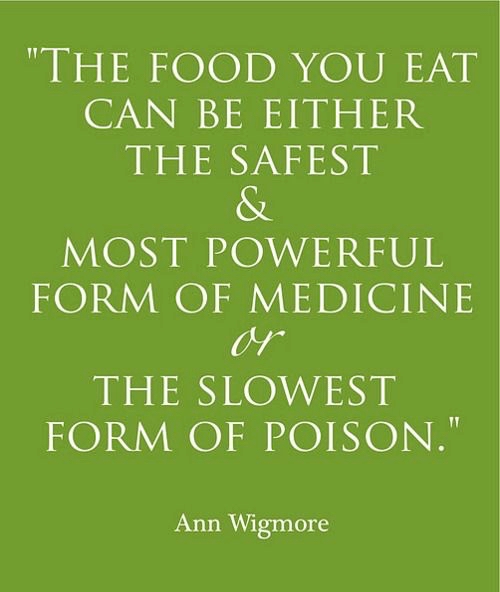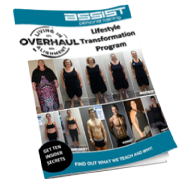
What are symptoms of food sensitivities, why you want to pay attention to how foods affect you and what you can do about it!
Have you ever watched a loved ones health deteriorate? If it were within your means to give them more days in better health, would you do whatever was within your power to make that happen? What about yourself? What if you could look after yourself better now so that you could spend more of your days with the loved ones that still surround you? To watch your kids grow up and watch their children grow up.
Sure we can’t live forever but one thing I truly believe is that prevention is better than a cure and empowering ourselves with knowledge to live healthier and happier lives is better than having your balls owned by a life that comes from having to be reactive. Cancer, lifelong prescription medications, aches and pains, depression, autoimmune diseases are just a few of the reactive circumstances that rule our lives or the lives of the loved ones around us.
Whether we like it or not, foods and our environment play a major role in the circumstances we find ourselves in today. What’s worse is that when we try to bring up the topic with a loved one, often it falls on deaf ears for one of three main reasons.
- They trust that the foods we have access to in supermarkets is good for consumption.
- They are happy to address health issues down the track with medications instead of addressing lifestyle factors now.
- They rely only upon food choices to bring them comfort or enjoyment instead of living a life that brings them for happiness.
There’s nothing wrong with getting comfort or enjoyment from foods but when those choices are leaving us feeling like shit, it’s time to take a step back and analyse if perhaps we could make some changes that will help us be happier and healthier, living a proactive lifestyle rather than a reactive lifestyle.  I think back to when I found out that I had an intolerance to wheat, dairy, soy and nuts, four out of five things I was tested for.
I think back to when I found out that I had an intolerance to wheat, dairy, soy and nuts, four out of five things I was tested for.
I was intolerant, not allergic, so for me I didn’t see it as alarm bells to overhaul my life and immediately start changing my eating habits. After all, I was functioning just fine, so I thought.
The only issue I really had was that I couldn’t shift those last few stubborn kilos. Not a big priority. I otherwise felt fine.
That was until I actually eliminated the foods I had become sensitive too and got to experience life with more energy, without the brain fog or discomfort those foods brought me that I thought was normal discomfort.
The facts are that my body was in an inflamed state. I could eat these foods with no major symptoms because my immune system was fighting, sending out antibodies to keep me going with no real disruption but how long was my body going to allow this to happen before it completely cracked the shits and began failing me, before I found myself in the waiting room of the local GP, looking for answers about unknown health issues, taking medications to keep my body and brain functioning optimally….no thanks, that’s not for me.
So that’s how my life changed. That’s why I’m committed to teaching and helping anyone who is ready for change to implement the steps that have helped me and hundreds of our clients live healthier and happier lives. There are many symptoms linked to food intolerances. These include:
Gastro Intestinal Symptoms
· Irritable bowel Syndrome (IBS) · Leaky Gut Syndrome · Irritable Bowel Disease (IBD) – Ulcerative Colitis and Crohn’s Disease · Gas · Diarrhea · Constipation · Cramping · Indigestion · Nausea
Skin Symptoms
· Rashes · Dermatitis of any kind · Eczema · Angioedema · Hives · Psoriasis
Respiratory Symptoms
· Asthma · Congestion · Excess Mucus · Sinusitis · Rhinitis · Pharyngeal irritations · Chronic or Intermittent Cough · Ear Nose & Throat (ENT) illnesses of any kind such as ear infections, tonsillitis, sleep aponea
Head Symptoms
· Fatigue · Mental Fog · ADD/ADHD · Depression · Anxiety · Mood Swings · Insomnia · Head Aches · Chronic Systemic Inflammation Muscle/Joint Pains · Dark Circles Underneath the Eyes · Hay fever
IBS is one of the most common diagnoses to come from inflammatory foods and a high stress levels. IBS is also the starting point for more serious diseases and it’s common for those who suffer with it to also suffer from anxiety, depression and chronic fatigue syndrome. IBS is twice as common in women and typically occurs before the age of 45. Hormonal conditions and auto immune diseases can also be triggered by food sensitivities. Leaky gut is now also being recognised as an underlying cause of autoimmune conditions, inflammatory skin conditions and digestive symptoms.
Foods is where we need to start when we want to address our health issues, however, unlike allergies where symptoms are almost immediate, food sensitivities often produce delayed reactions sometimes as long as 36 hours later but in some cases, even up to 8 days later.
If you would like to get on the way to a healthier and happier life for yourself, reach out today. There’s no judgement about where you’re at now or where you’ve been, how many attempts you’ve taken. What matters most is what you’re willing to do next to help yourself so that you can do all within your means to start living your best life now.
Our personal training packages are created to suit you and your goals. Because Annette also does a lot of work as an Applied Muscle Testing Practitioner, she also test for food sensitivities to help our clients who want to change body composition, improve performance and their health. Last but not least, we’ve also created a lifestyle transformation program to cover all aspects of implementing a healthier lifestyle.





